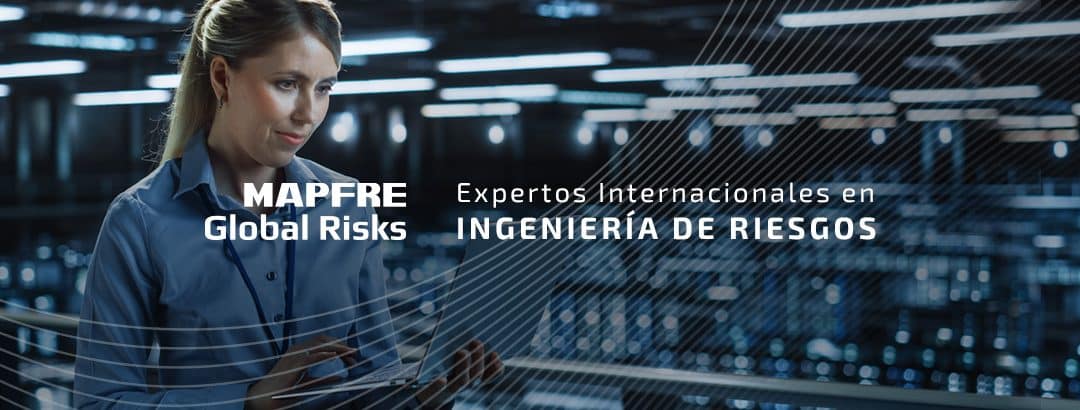Cristina Leon Vera | 22/02/2024
On February 20, 21 and 22, Accenture, Oracle, and INESE joined forces to celebrate the XXXI edition of Insurance Week with an inspiring slogan: “Let’s talk about reinvention. Think big, be different” and MAPFRE had to be there.
Insurance Week, held at IFEMA Madrid’s North Convention Center, followed a program filled with high-level, highly relevant lectures and roundtables with a wide range of perspectives. More than 40 sessions were planned featuring companies, organizations, brokers, unions, underwriting agencies, etc. to deliver their content to more than 5,000 attendees at the event.
With the objective of inspiring “a bold mindset, pursuing ambitious goals, and embracing uniqueness,” this event has shown that, as in all industries, differentiating yourself from others “can set the stage for success”, in the words of Susana Pérez, INESE’s General Manager at the opening of the event.
Confidence in Challenges
The insurance industry is experiencing a climate of materialized challenges in digitization, artificial intelligence, and natural disasters that, without a doubt, keeps it on its toes. MAPFRE took part in the roundtable in which the most senior leaders from insurance companies participated. Next to Elena Sanz Isla, recently appointed CEO of MAPFRE Iberia, were Carlos Escudero, CEO of Generali Spain, Olga Sánchez, CEO of AXA Spain, and Andrés Romero, General Managing Director of Santalucía. Among these big challenges the insurance industry is facing, Elena Sanz added others: “The increase in atmospheric events, longevity, hyperpersonalization, the chronification of fatal illnesses, etc.” To address these challenges, she noted that “technical rigor and diversification help to grow better.”
MAPFRE also wanted to devote its panel to the figure of the professional intermediary and, specifically, it focused on the variable remuneration strategy in companies and on Savings-Investment.
 Jesús Martínez Castellanos, Deputy CEO of MAPFRE Iberia, discussed the strategy of variable remuneration in the company in depth and highlighted its strengths in retaining talent. Among the benefits of variable remuneration, he highlighted group health insurance, that is, health insurance that is consolidated through a company plan, and retirement savings policies. Neither is an extra cost to the company and both offer tax benefits to the employee. Since 2023, these Global Employee Benefits (GEB) have been part of the services MAPFRE Global Risks offers to its Major Risks Customers.
Jesús Martínez Castellanos, Deputy CEO of MAPFRE Iberia, discussed the strategy of variable remuneration in the company in depth and highlighted its strengths in retaining talent. Among the benefits of variable remuneration, he highlighted group health insurance, that is, health insurance that is consolidated through a company plan, and retirement savings policies. Neither is an extra cost to the company and both offer tax benefits to the employee. Since 2023, these Global Employee Benefits (GEB) have been part of the services MAPFRE Global Risks offers to its Major Risks Customers.
Pedro J. Carreño González, Director of Brokers Channel Development at MAPFRE ESPAÑA, highlighted the figure of the professional intermediary as a “key figure in insurance for self-employed workers and companies.” He was also the moderator of a table where Elvira López de Lara, MAPFRE’s Corporate Director of Distribution Channels, participated along with Diego Bacigalupe Saiz, Executive Director of Aspuru brokerage, and Roberto Borrás Barris, Partner and Cofounder of Rhombus. As INESE points out in its summary, “the discussion addressed topics such as the importance of professional mediation in insurance for self-employed workers and companies, the advantage these professionals have thanks to their ability to advise on Savings-Investment insurance, and the keys to boosting the Life business both in brokerages and in related agencies.”
Trending Topic: Artificial Intelligence
In virtually all of the panels, the words “artificial intelligence” were mentioned at least once and, in addition, the panels on AI attracted considerable interest. AI is not only applicable to marketing, it can also be applied to sales techniques, underwriting, analytics, personalized Customer service, claims management, and even Human Resources.
Following the Capgemini session in which real examples were provided, a debate was moderated by Raúl Santiago del Humilladero, Senior Digital Transformation Manager, Financial Services of Capgemini, in which Alberto López Santamaría, Deputy Director of MAPFRE’s Data & Analytics Platform, participated and made predictions about the future: “No one doubts the value this technology will offer us in the medium term and even in the short term.” He explained, “In addition to value, it comes with risks and also new costs that we need to consider so we don’t encounter any surprises.”
As mentioned in the Minsait panel, Artificial Intelligence is nothing without the data that is entered: “Data is now more important than ever,” said Andrés Duque, Supervisor of AI Business Insurance at Minsait. For this reason, it is key that this development is carried out in an effective guidelines framework to trust the market, explained Leticia Gómez, Supervisor of AI Strategy and Governance.
She continued to moderate the roundtable titled “The Return of AI, the Obstacles to Overcome, and the Challenges of Ethics and Innovation.” Diego Bodas, MAPFRE’s Global Chief AI Office, took part in the roundtable. He believes AI is “more than just technology.” Here is how he defined that range: “It’s a much broader concept, a way of working, a science.” Alongside were José Carlos Prieto, Manager of Transformation and Operational Excellence at Santalucía, and Andrés Espín, Supervisor of IT Innovation at SegurCaixa Adeslas.
Challenges for All
Underwriting areas of insurance companies will play an even more key role in the process of change we are undergoing. Lloyd’s roundtable addressed challenges such as digitization, geopolitical context, innovation, and the creation of new insurance solutions from an ESG perspective.
Mobility is certainly a booming industry as well. On the Munich Re panel “Where Are We Going? The Present and Future of Mobility,” José María Cáncer, General Manager of CESVIMAP, participated and presented the MAPFRE model and explained the main regulatory impacts and how they affect our industry. Among his insights in the session, there are two key highlights. Regarding hybrid mobility, he observed that “batteries are still not old enough,” so it is difficult to know what the short- to medium-term risks will be as electric vehicles get older. Along the same lines, he insisted that, as we have already stated in our articles more than once, “it is essential to be aware of battery health and to maintain and use the battery properly.”
Finally, at the table called “whAIt now?”, an economic approach was presented. Thanks to the implementation of Artificial Intelligence, productivity could increase by 30 and 35% according to Ignasi Barri, Offering Director at GFT. This would mean an impressive 7 points of global GDP over the next 10 years.





